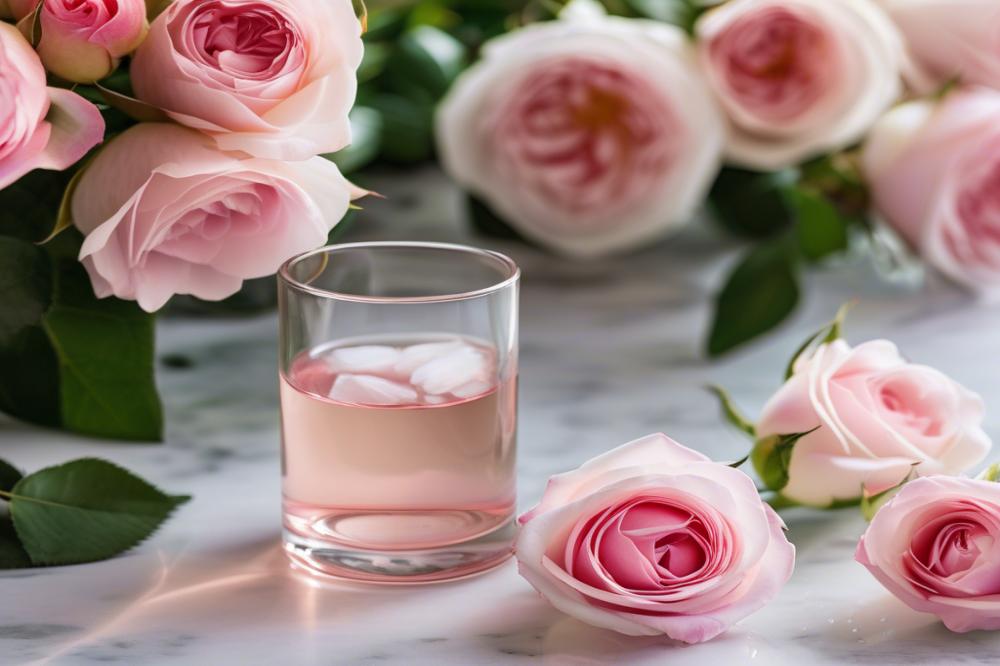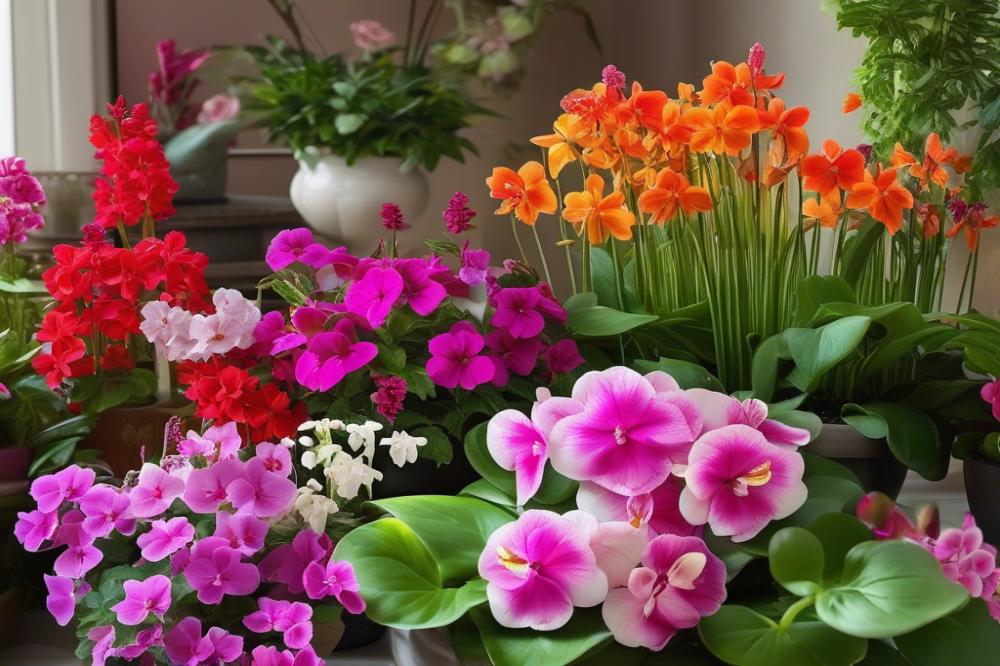Making Your Own Fragrant Rose Water
Many people appreciate the delightful aroma and versatile benefits of rose water. This floral water has been used for centuries in beauty and cooking. It works wonderfully in natural skincare routines, adding hydration and a lovely fragrance. You can even use rose water in various beauty products, from lotions to perfumes. The soothing scent can also enhance your self-care rituals through aromatherapy.
Choosing the right kind of roses is crucial for creating the best homemade rose water. garden roses are the ideal option. These flowers often possess richer scents and vibrant colors compared to store-bought varieties. The freshness of the petals significantly impacts the quality of your rose water recipe. When you grow roses yourself, you’re aware of their treatment and conditions, ensuring that your infusion maintains purity and goodness.
growing roses can be an enjoyable hobby. It connects you with nature and cultivates patience. Over time, you can learn about distilling roses. The process is straightforward and rewarding. With a few simple steps, you can turn beautiful rose petals into fragrant rose water. This venture allows for creativity and personalization in your DIY rose water projects, making each batch unique. Each time you use it, you’ll appreciate the connection between your garden and the lovely product you created.
The Benefits of homemade rose water

Creating your own flower infusion has many advantages. Natural skincare properties are a major reason many choose to make homemade rose water. It hydrates the skin without any harsh chemicals. You get an all-natural product that soothes redness and irritation. Using it as a toner helps balance the skin’s pH levels, making it great for various skin types.
DIY rose water can enhance beauty products significantly. Whether you add it to creams or serums, the effects are often noticeable. The gentle scent and soothing properties work wonders in lip balms and moisturizers. Furthermore, people enjoy using it in face masks for a refreshing boost. Not to mention, it can give any beauty routine an aromatic lift.
Role in Aromatherapy and Fragrance
Rose water also shines in the realm of aromatherapy. Its delicate fragrance brings tranquility and calm to any setting. Diffusing rose-infused floral water can create a serene environment perfect for relaxation. Many people appreciate how its scent can relieve stress. Incorporating it into your daily routine can uplift your mood and clarity.
Comparison of Homemade vs. Store-Bought Rose Water
Homemade products often come out on top when compared to store-bought versions. Commercial rose waters may contain preservatives and synthetic fragrances that are less desirable. They often lack the purity of a fresh rose petals extract. Making your own ensures you know exactly what goes into your creation. A simple rose water recipe can result in a cleaner, healthier product. Homemade rose water fosters a more authentic experience, while offering you complete control over the quality.
In conclusion, creating your own rose water combines beauty and self-care in one simple process. Make the shift from conventional products to something personal. This choice not only nourishes your skin but enriches your life.
Choosing the Right Roses for Distilling

When it comes to making homemade rose water, selecting the right rose petals is essential. Ideal rose petals should boast vibrant colors and a fresh, captivating fragrance. The aroma is crucial because it directly impacts the quality of your final product. Soft, velvety petals often yield the best results. You want roses that have just bloomed, as they contain the highest oil content needed for an effective rose water recipe.
Organic and chemical-free roses are important for several reasons. Roses that have been treated with pesticides or other chemicals can compromise the purity of your DIY rose water. It’s best to use flowers that are grown without synthetic sprays, especially if you plan to use the rose-infused product for skincare and beauty products. After all, delicate skin deserves the gentle touch of nature.
Types of garden roses to Consider
Diving into different rose varieties can lead to exciting results. Traditional favorites like Rosa damascena, often called the Damask rose, are renowned for their exceptional fragrance. Many natural skincare enthusiasts swear by its effectiveness. Other notable types include the Gallica and Bourbon roses, which also produce lovely floral water.
When selecting your roses, remember to consider their blooming season. Some roses bloom in summer, while others might blossom in spring or fall. Carefully timing your harvest can enhance the potency of your rose petals. With a little knowledge and effort, you can create your rose infusion that embodies the essence of fresh garden flowers.
Rose Water Recipe

Creating your own rose water at home can be a delightful and simple process. This rose water recipe revolves around the beauty of using fresh garden roses. Gather your materials first to set yourself up for success.
Equipment Needed for Distilling Roses
Here’s what you need:
- A large pot with a lid
- Fresh rose petals (preferably organic)
- Water
- A heat source
- A glass bowl or jar
- A strainer or cheesecloth
These tools make the process straightforward and effective. Using fresh petals directly from your garden works best for quality fragrance and benefits!
Process of Extracting Rose Infusion
Start by rinsing the rose petals gently in cool water to remove any dirt or bugs. Place the cleaned petals in your pot, and add enough water to cover them. Next, put the lid on the pot upside down to help capture the steam. This is crucial for collecting your floral water.
Heat the pot on a low flame. You should notice steam forming inside the lid. As the steam rises, it will carry the aroma of the petals. When it condenses on the lid, droplets will fall into the bowl or jar placed beneath it. This is where the magic of distilling roses happens!
After about 30 minutes, turn off the heat. Let the pot cool down before carefully removing the lid. Strain the liquid through a cheesecloth or fine strainer to filter out any remaining petals. What you have left is a beautifully fragrant rose infusion.
Tips for Troubleshooting Common Issues
Sometimes, making DIY rose water may not go as planned. If your infusion lacks fragrance, you might need more petals or longer cooking time. Too much heat can also diminish the aroma, so adjust your flame accordingly.
In case your finished product appears a bit cloudy, this could be from unexplained impurities or leftover particles. Just strain it again for clarity. Use a clean bottle for storage. Think about keeping it in a cool, dark place for the best preservation.
When using rose water for beauty products, remember it can be a refreshing addition to your natural skincare routine or an aromatic touch in homemade lotions. Experimenting with different rose varieties may give you unique scents.
Using Your Homemade Rose Water

Incorporating Rose Water into Daily Beauty Routines
Splash rose water on your face after cleansing. It acts as an excellent toner, helping to refresh and hydrate your skin. Mixing it with your favorite lotion can enhance its benefits. Adding a few drops into your homemade beauty products can boost their effectiveness. As you experiment, notice how rose water helps improve your skin’s overall appearance. It benefits all skin types, thanks to its soothing properties.
Suggestions for Aromatherapy and Relaxation
Use rose water for a calming atmosphere. Add it to your bath for a gentle, floral scent. Create a relaxing mist by combining rose water and essential oils in a spray bottle. Surround yourself with the sweet fragrance when you need to unwind. Consider adding it to a diffuser for an aromatic experience that elevates your mood. Spraying it on your pillow at night can promote better sleep while filling your space with tranquility.
Storage Tips and Shelf Life of Homemade Rose Water
Storing your floral water properly is vital for its longevity. Keep it in a cool, dark place to prevent spoiling. Glass bottles work best as they protect it from light. If refrigerated, you can extend the freshness to about two weeks. Always check for any changes before use. Signs of spoilage may include strange odors or discoloration. Remember, homemade rose water can provide wonderful benefits, but proper care is key.
Creative DIY Rose Water Projects
Ideas for Beauty Products Using Rose Water
Using your homemade rose water opens up a world of beauty products. It’s a fantastic addition to facial sprays, providing hydration and a lovely fragrance. Mix rose water with aloe vera for a soothing skin mist that calms irritation. Consider creating a rose-infused toner to balance oily skin. Adding a few drops to your favorite moisturizer can boost its effects. You can even use it in homemade face masks for an extra touch of luxury. Just a splash of this floral water can elevate any beauty routine.
Other Uses in Home and Health
Think beyond cosmetics for your rose water. Aromatherapy enthusiasts love its calming scent, making it perfect for diffusing. A few drops in a warm bath can transform your experience into a spa day. Not only does it relax you, but rose water is also appreciated for its mild antibacterial properties. Try adding it to your laundry for a fresh fragrance. Incorporating it into cooking can add a unique twist to desserts like puddings or cakes. Experiment with rose-infused beverages as well for a refreshing drink.
Encouragement for Experimentation with Floral Waters
Don’t hesitate to explore different floral waters. Each type offers special benefits and scents. You might enjoy making lavender water or even jasmine infusion. Mixing various floral extracts can lead to delightful aromas and surprising results. Creating custom blends allows for more personal preferences. Your kitchen can become a laboratory for unique fragrances. The joy of crafting your own products adds a personal touch to your self-care routine. With the right ingredients, you can discover a world where beauty and health intertwine seamlessly.
Wrap-Up and Invitation to DIY
Making rose water at home is not only beneficial but also surprisingly simple. This fragrant elixir can hydrate your skin, act as a gentle toner, and add a delightful aroma to your daily routine. By using roses from your garden, you have complete control over the ingredients, ensuring freshness and purity. Each spritz brings a touch of nature to your skincare, making it a unique addition to your beauty arsenal.
Growing garden roses offers additional advantages. These flowers not only beautify your space but also provide a sustainable resource for your skincare needs. Encouraging the cultivation of roses fosters a connection with nature while enhancing your daily beauty rituals. Imagine walking through your garden, harvesting petals, and transforming them into a soothing rose water recipe that elevates your self-care practice.
Why not give it a try? Making your own DIY rose water can be a fun, rewarding project. Empower yourself by embracing the art of natural skincare. Gather your materials and set aside a little time for this rewarding process. You may discover a new favorite way to pamper yourself. Dive into the experience of crafting handmade beauty products and enjoy the fruits of your labor. Go ahead, let your creativity flourish, and enjoy the many benefits that come from using your own homemade rose water.



